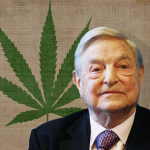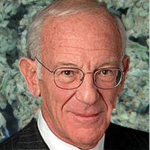NPR ignores facts to promote legalization
On January 28, 2018, the Freakonomics show on NPR was a series of questions answered by Steven Levitt. One question asked what one thing would you do to decrease violent crime, and Levitt’s answer was to legalize all drugs. He gave no explanation as to why this would work.
First of all, it’s just not true. According to a report by CASA Columbia, two-thirds of all people in prison have a substance abuse disorder. But they are not locked up for drug possession. According to a 2005 study published in Contemporary Drug Problems, fewer than one percent of prison inmates are incarcerated solely for drug possession. 
Most substance abusers are in prison for something they did when they were under the influence, that is, when they were drunk or high. I’ve interviewed a lot of these people. They usually tell me they’ve never been arrested for anything they did clean and sober, and if they did not drink or use drugs they would never have seen the inside of a jail or prison. I often told my incarcerated patients that prisons are not filled with criminals; they are filled with untreated substance abusers.
 But the crimes they commit are very real. Most violent crimes are committed by people who are under the influence at the time, and this includes mot murders, most assaults, and most robberies. If we legalize drugs, more people will get addicted to them and we will have more violent crime, not less.
But the crimes they commit are very real. Most violent crimes are committed by people who are under the influence at the time, and this includes mot murders, most assaults, and most robberies. If we legalize drugs, more people will get addicted to them and we will have more violent crime, not less.
Alcohol is legal and is responsible for a lot of crime. A study from the 1950s, when the only widely used drug of abuse was alcohol, found that about two-thirds of all violent crimes were committed by people who had alcohol in their system. During Prohibition of alcohol, the country’s murder rate flattened, whereas it had steadily increased before Prohibition and increased again after Prohibition was repealed.
 The second most common reason substance abusers commit crime is to get money, but it’s not just money to buy drugs; it’s money to live. Many substance abusers are unable to hold a job, so they steal to pay rent and buy food. This includes a lot of alcoholics, even though alcohol is cheap and legal. So legalization would also increase this type of crime, not decrease it.
The second most common reason substance abusers commit crime is to get money, but it’s not just money to buy drugs; it’s money to live. Many substance abusers are unable to hold a job, so they steal to pay rent and buy food. This includes a lot of alcoholics, even though alcohol is cheap and legal. So legalization would also increase this type of crime, not decrease it.
Legalization would decrease violence and theft used to obtain drugs, and would decrease violence and theft involved with selling drugs. This is significant, but is probably no more than 15 – 20 percent of all crime. So decreasing this type of crime would not make up for the increased crime that legalization causes, and what Levitt said as part of his NPR show was wrong.
This sort of incorrect information is not a one-time event. NPR consistently takes a pro-legalization stance.
A bit later on January 28, I was listening to On The Media, a news show about the news. During a break, an announcement said the show was sponsored by the ACLU, which is one of the country’s main pro-legalization organizations. The ACLU used to focus on the first amendment, but now is just as focused on promoting the legalization of drugs. It is probably not a coincidence that the ACLU received a $50 million donation from George Soros, who founded the Drug Policy Alliance, and another $7 million from the late Peter Lewis, who helped start and donated heavily to the Marijuana Policy Project. $57 million is about twice as much as the ACLU receives from all its membership dues each year.
By taking money from the ACLU, NPR is taking money from pro-legalization billionaires. So it’s not surprising that NPR would misinform its listeners about the benefits of drug legalization.



